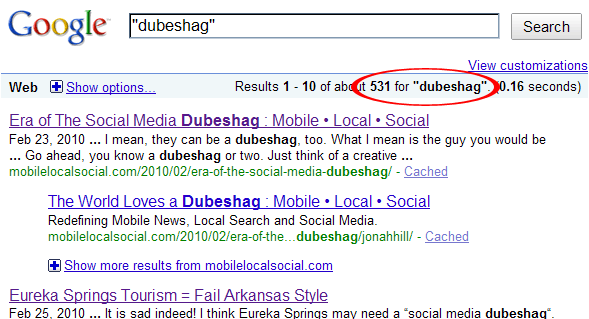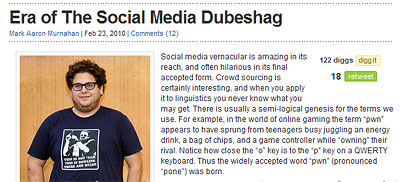
I have heard many arguments separating SEO and social media by trying to decypher which is more valuable. Many of the people arguing this point are on one side or the other, and miss the point that they are both tactics which work together toward an overall strategy. Many people also seem to miss the fact that they are largely the same thing.
Here are a few questions that marketers use for producing arguments:
- Which is more important … SEO or social media?
- Which discipline provides the higher return on investment?
- How do you calculate the ROI of social media?
- SEO? Isn’t that some sort of fairy dust?
- How do you separate chicken poop from toothpaste?
OK, that last one was my own personal interpretation, but seriously … how can people get this so mixed up that they stand in their corner arguing their respective knowledge without coming together in the center and having a big group hug?
SEO opens a lot of doors for companies. Having their greatness spread across the Internet in a way that people will find it when they search for something is extremely productive. People still ask me the question “how will people find my website?” To me, the question seems pretty easy … they will search for it! Having great information on a well prepared website and making it available to search engines is a “no-brainer”. Well, it is a “some-brainer”, because a lot of people still don’t really grasp it. In any case, it is very valuable, and backed up with a lot of facts. It also provides a lot of value to back up your social media marketing endeavors.
Social media is a great way to discover the people who may be interested in searching for you. It is often a proactive approach where you can add yourself to the mix. It is also a great way to learn more about those people who are already searching for you, will be searching for you, or may never search for you but will take a recommendation from others they trust. It also provides a lot of value to your search engine optimization endeavors.
I find that a lot of people get these two fields very confused, both by trying to separate them and by trying to merge them. SEO and social media both have their own unique qualities, but the reality is that trying to separate them is about as easy as picking chicken poop out of your toothpaste.
Both of these areas of Internet marketing are the same in many ways. Search engines use popularity of a website measured by incoming links pointing to the website content as a major factor for ranking. Social media also uses the popularity of website content as a major factor for ranking. What a lot of people fail to realize is how much they both work the same, and they both work in synergy.
I would be pleased to carry on in my typically lengthy way of writing until my brain hurts from extolling the values of these various marketing tools, but I have already done that. After all, have you seen my blog title? It is titled “SEO and Social Media Marketing Blog“ for a reason.
Today, I want you to jump in and help me to explain how both are intertwined yet diverse.
If you can offer a better way to describe the relationship of SEO and social media than to say that it is like trying to pick chicken poop from your toothpaste, I will offer you a kiss full on the mouth. I have nice fresh breath, but I can assure you that I have found a whole lot of “chicken poop in my toothpaste”.
I still brush regularly.
Photo credit to andrein via Flickr

